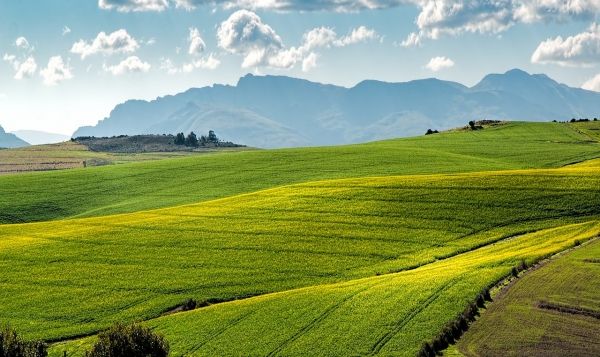Chi Chen, a Boston University graduate researcher, and Ranga Myneni, a BU College of Arts & Sciences professor of earth and environment, are authors on a new paper that reveals how humans are helping to increase the Earth’s plant and tree cover, which absorbs carbon from the atmosphere and cools our planet. The boom of vegetation, fueled by greenhouse gas emissions, could be skewing our perception of how fast we’re warming the planet.
Taking a closer look at 250 scientific studies, land-monitoring satellite data, climate and environmental models, and field observations, a team of Boston University researchers and international collaborators have illuminated several causes and consequences of a global increase in vegetation growth, an effect called greening.
In a new study, published in Nature Reviews Earth & Environment, the researchers report that climate-altering carbon emissions and intensive land use have inadvertently greened half of the Earth’s vegetated lands. And while that sounds like it may be a good thing, this phenomenal rate of greening, together with global warming, sea-level rise, and sea-ice decline, represents highly credible evidence that human industry and activity is dramatically impacting the Earth’s climate, say the study’s first authors, Shilong Piao and Xuhui Wang of Peking University.
Green leaves convert sunlight to sugars while replacing carbon dioxide in the air with water vapor, which cools the Earth’s surface. The reasons for greening vary around the world, but often involve intensive use of land for farming, large-scale planting of trees, a warmer and wetter climate in northern regions, natural reforestation of abandoned lands, and recovery from past disturbances.
Read more at Boston University
Photo Credit: stevepb via Pixabay


